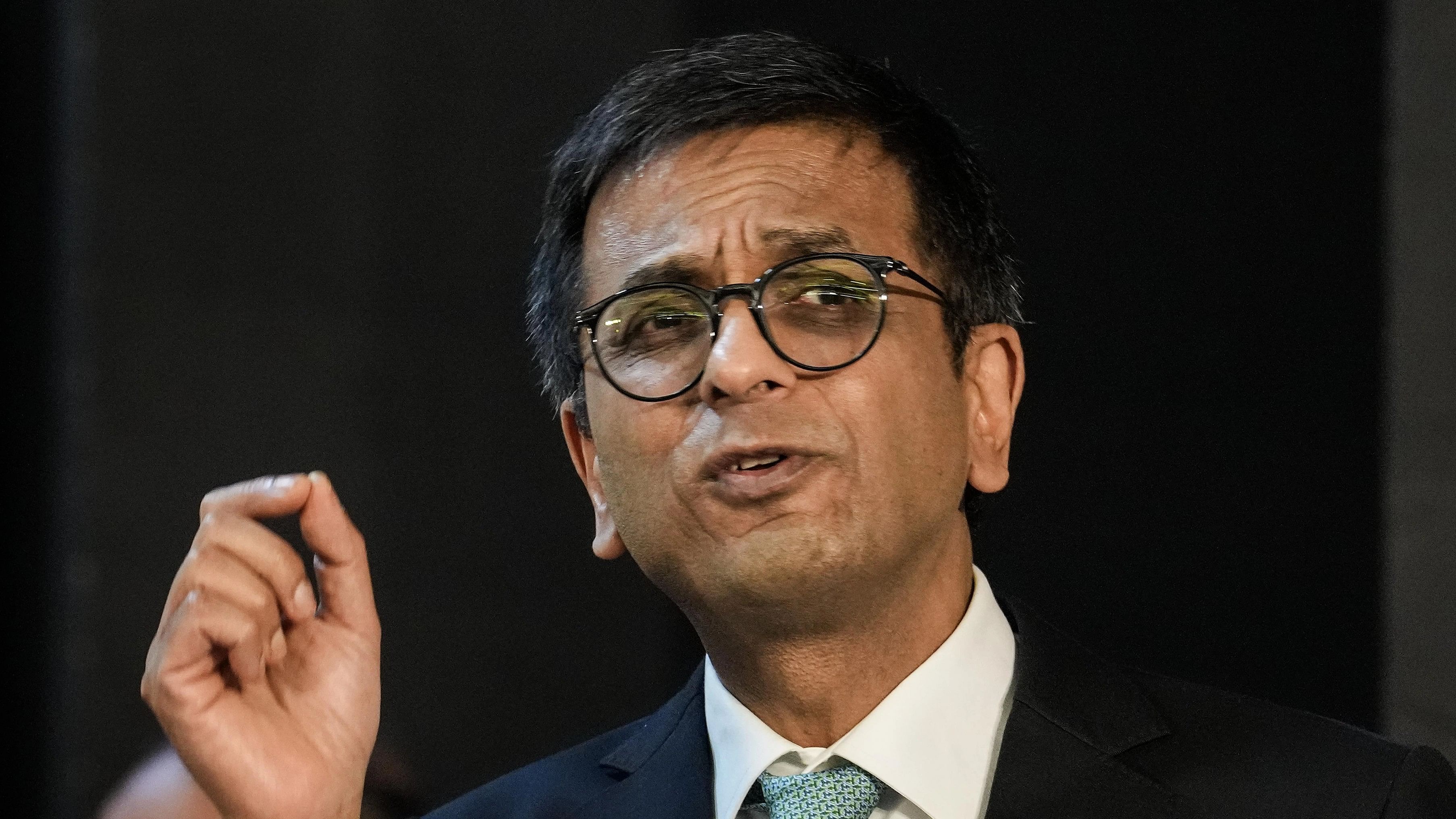
CJI Justice DY Chandrachud.
Credit: PTI File Photo
Eighteen media bodies and journalist trade unions on Wednesday wrote to Chief Justice of India (CJI) D Y Chandrachud seeking his intervention in the police action against NewsClick, saying “ad hoc, sweeping seizures and interrogations cannot be considered acceptable” in any democratic country, especially when it has started advertising itself as 'mother of democracy'.
They sought framing of norms to discourage the seizure of journalists' phones and laptops on a “whim” and evolve guidelines for interrogation of journalists and for seizures from them to ensure that they are not subjected to “fishing expeditions with no bearing on actual offence”.
The media bodies urged the courts to find ways to ensure accountability of state agencies and officers who are found “overstepping” the law or “wilfully misleading” the courts with “vague and open-ended” investigations against journalists.
The letter, which was read out at a protest meeting at Press Club of India here, came following the arrests of NewsClick founder-editor Prabir Purkayastha and its HR head Amit Chakravarty after raids at the premises of 46 journalists, consultations and non-journalists linked to the news website on Tuesday.
"We do not say that journalists are above the law. We are not and do not wish to be. However, intimidation of the media affects the democratic fabric of society. And subjecting journalists to a concentrated criminal process because the government disapproves of their coverage of national and international affairs is an attempt to chill the press by threat of reprisal -- the very ingredient you (CJI) identified as a threat to freedom" it said.
The letter was signed by Digipub News India Foundation, Indian Women's Press Corps, Press Club of India, Network of Women in Media, India (NWMI), National Alliance of Journalists, Delhi Union of Journalists, Kerala Union of Working Journalists, Brihanmumbai Union of Journalists, Arunachal Pradesh Union of Working Journalists, Mumbai Press Club and Indian Journalists Union among others.
“The fact is that today, a large section of journalists in India finds itself working under the threat of reprisal. And it is imperative that the judiciary confronts power with a fundamental truth -- that there is a Constitution to which we are all answerable,” the letter said.
The bodies told the Chief Justice that the NewsClick staffers' mobile phones and computers were seized without ensuring the integrity of their data, which is a basic protocol that is essential to due process.
“The invocation of UAPA is especially chilling. Journalism cannot be prosecuted as ‘terrorism’. Enough instances in history abound to tell us where that eventually goes,” it said.
It reminded the top judge that he has seen how on numerous occasions, the investigating agencies have been "misused and weaponised" against the Press. “Sedition and terrorism cases have been filed against editors and reporters, and multiple, sequential and/or frivolous FIRs have been used as an instrument of harassment against journalists,” it said.
Emphasising that they were not seeking to “bypass or circumvent the process and procedure established by law”, it said, when journalists are summoned and their devices seized in the name of investigation, there is an inherent malice in the process that must be checked.
“Just as the police are obliged by the Constitution to state the grounds of arrest, it must equally be a precondition to questioning. In its absence, as we have seen in the NewsClick case, vague assertions about the investigation of some unspecified offence have become the grounds for questioning journalists about their coverage of, inter alia, the farmers’ movement, the government’s handling of the Covid pandemic and the protest against the Citizenship (Amendment) Act,” it said.
Recalling the ordeal of journalist Siddique Kappan who was incarcerated for over two years in jail before finally securing bail and tragic death of Father Stan Swamy in custody, the letter said it is a reminder of how indifferent the authorities seem to have become towards human life under the guise of combating terrorism.
“Our fear is that state actions against the media have been taken beyond measure, and should they be allowed to continue in the direction they are headed, it may be too late for corrective or remedial steps. It is, therefore, our collective view that the Higher Judiciary must now intervene to put an end to the increasingly repressive use of investigating agencies against the media,” it added.
Among others, Foundation for Media Professionals, Chandigarh Press Club, Guwahati Press Club, Kolkata Press Club, Working News Camermen's Association (WNCA) and Mumbai-based Free Speech Collective also signed the letter.
